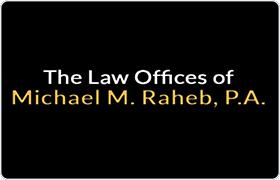Collier County, FL Criminal Lawyers
Sponsored Law Firm
-
 x
x

Click For More Info:
-
Law Offices of Michael M. Raheb P.A.
2423 First St Fort Myers, FL 33901» view mapCriminal Defense Law Legal Problem? Call Us 24/7
At the Law Office of Michael M. Raheb, we strive to ensure each of our clients receives the individual attention and representation necessary to obtain an optimal outcome.
800-890-8981
Jeffry S. Perlow
✓ VERIFIEDEstate, Wills & Probate, Elder Law, Litigation, Criminal
Over the past thirty-five years I have had the opportunity to represent thousands of clients in many different areas of the law. I have extensive expe... (more)
Landon Miller
✓ VERIFIEDCriminal, DUI-DWI, Felony, Misdemeanor, White Collar Crime
Landon Miller has been practicing as a criminal defense attorney in Naples and Ft Myers for 18 years. His previous cases include but not limited to mu... (more)
Shannon Howard Mcfee
Criminal, Accident & Injury, Lawsuit & Dispute, Traffic, Juvenile Law
Status: In Good Standing Licensed: 32 Years
FREE CONSULTATION
CONTACTDavid Joffe
Civil Rights, International Tax, Family Law, Federal Appellate Practice, Criminal
Nico Joseph Vitale
Federal Trial Practice, Family Law, Divorce & Family Law, Criminal
Status: In Good Standing
James W. Chandler
Traffic, Family Law, Child Support, DUI-DWI
Status: In Good Standing Licensed: 20 Years
John Patrick Musca
Domestic Violence & Neglect, Divorce & Family Law, DUI-DWI, Criminal
Status: In Good Standing
Brantley Daw Oakey
Litigation, Estate, Criminal, Personal Injury
Status: In Good Standing Licensed: 12 Years
 Michael M. Raheb Fort Myers, FL
Michael M. Raheb Fort Myers, FL Practice AreasExpertise
Practice AreasExpertise


